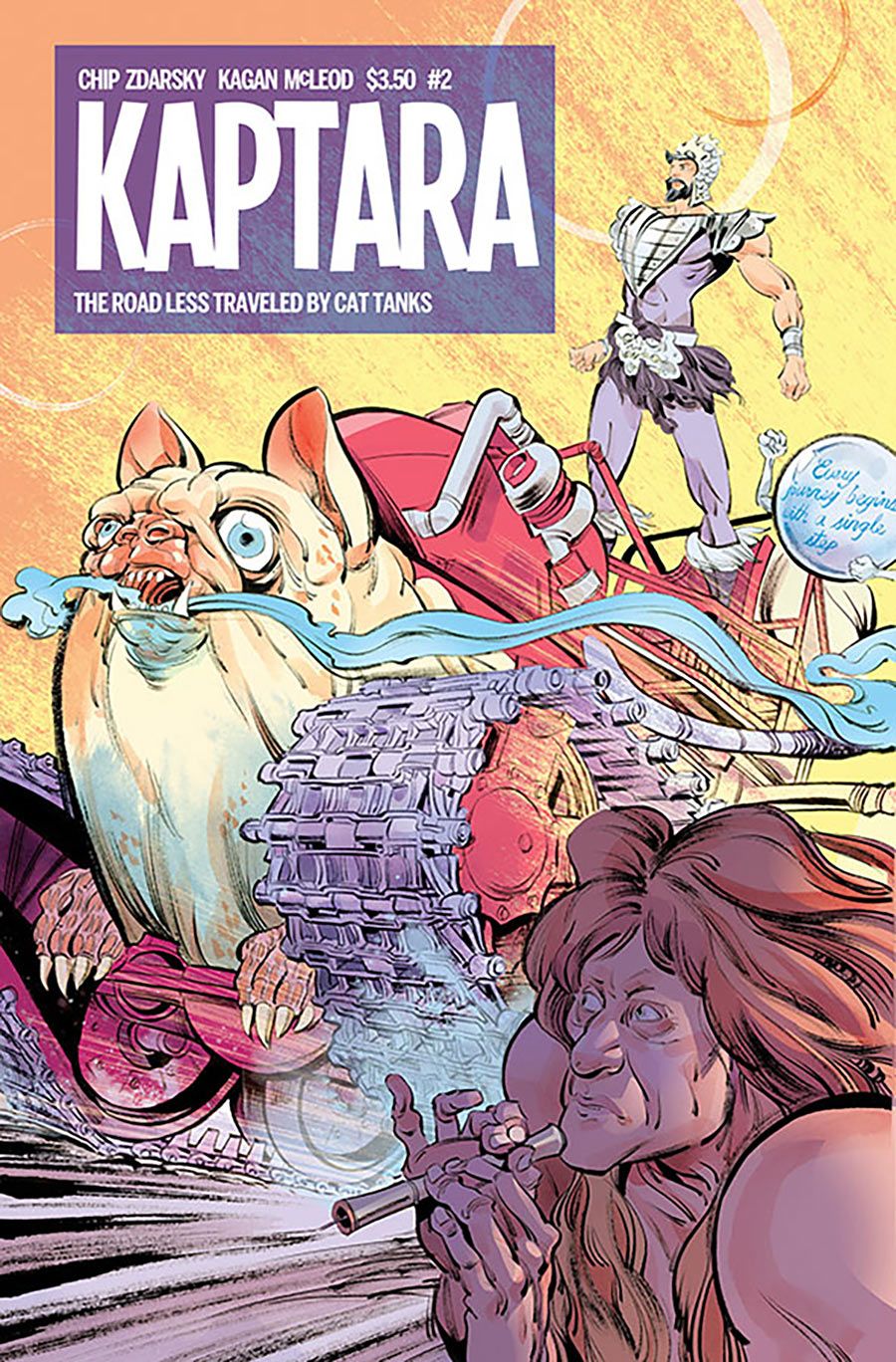The debut issue of "Kaptara" by Chip Zdarsky and Kagan McLeod was equal parts subversive and funny, and the second issue continues in much the same vein, except the balance is off. The plot starts to take even more of a back seat to the jokes. Keith, the main character, also becomes much more annoying. In the first issue, none of the characters were sympathetic, but Keith's emphasis on self-preservation seemed natural in the context of all that carnage. It was even refreshing that he was so defiantly non-heroic. In Kaptara #2, Keith's self-centeredness and cowardice become more grating.
The scene in which Keith is reminded of Lance's death is the exception. Zdarsky's script and McLeod's body language and color palette deftly shift the tone, letting the reader know that Keith isn't as callous as he may seem. However, the poignancy of this scene is spoiled by the ick factor of the "love hand" joke when Keith wakes up from a nightmare.
That's a case in point. The humor of "Kaptara" wears thin in the second issue. Most of the world building is a parody of the "Masters of the Universe" franchise and contemporaneous cartoons like "ThunderCats." The Prince is like a stupid version of "He-Man" and the other characters are just joke fodder as well. The humor is deliberately juvenile. It ends up being distracting and off-putting, interfering with the reader's immersion into the world. The constant gags about farting and sex are cringe-worthy, and their sheer incongruity and the subversive intent don't make up for the eye roll factor.
The stakes are supposedly epic, but they aren't really, since Zdarsky is making fun of the melodrama. Thus, the suspense of Keith's feelings about Earth isn't as strong as it could be. The satire and parody aren't sharp enough to create their own sense of depth, either.
The saving grace of "Kaptara" #2 is its over-the-top imagery. There are visual gags on every page. Manton's balletic grand jete is a surprise, and so are the cat-tanks. The glimpse of the exterior Villektra's headquarters shows that it's ridiculous and over-the-top, but McLeod's colors and composition are strong enough that the building elicits a shiver before the smirk comes. Transitions are also very smooth and McLeod seems game to draw almost anything, from "battlebrooms" to a "Cyklowl" (a cyclops-owl-man that is remarkably creepy). Similar to Layman and Guillory's work on "Chew," the sheer imagination of the creative team's humor is enough reason to read it.
Still, the humor predominates and it's not strong enough to hold up the plot on its own. Zdarsky will need to develop the characters more or ante up the sophistication of the humor to give the story more staying power in its initial arc. As it is, "Kaptara" contains too much mockery of the world it's introducing and too little heart.

